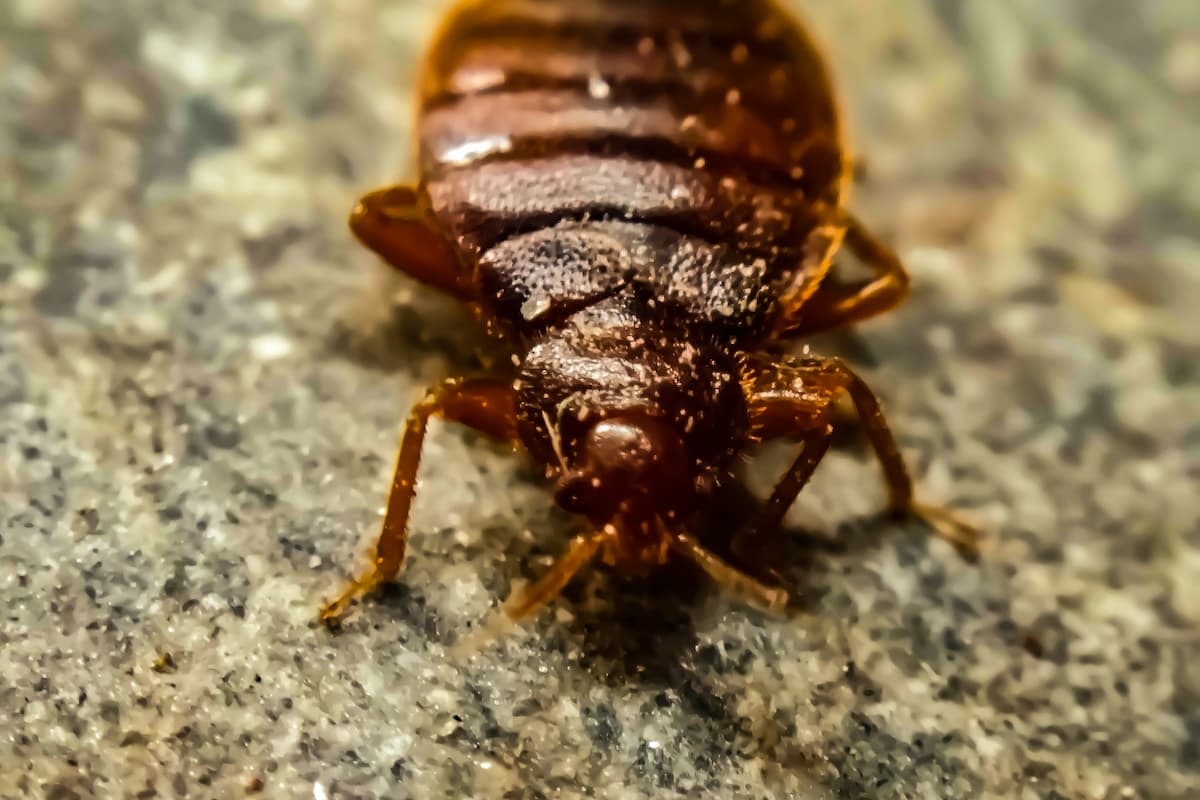Why Did Bed Bugs Just Disappear?
If your bed bug population vanished on its own, then consider yourself very lucky.
Bed bugs rarely just disappear on their own. For most people, it takes a lot of hard work to get rid of bed bugs, and they have to spend quite a bit of money to do so. However, if you’re suddenly not seeing bed bugs anymore, there’s a good chance they’re just dormant.
Why Would Bed Bugs Just Disappear?

Although it isn’t typical for bed bugs just to disappear, it can happen.
Unfortunately, though, the more likely reason you are no longer seeing the insects is that they have gone dormant.
If your bed bug problem disappeared during the wintertime, in particular, the insects have probably gone into a prolonged slumber because of the cold.
Yet, if dormancy isn’t why your problem has disappeared, you most likely did something else to get the bed bugs to leave, even if you don’t know what.
Why Won’t Bed Bugs Just Go Away on Their Own?
First of all, to understand why your bed bug problem has disappeared, you need to know why bed bugs won’t just up and leave a house.
Primarily, bed bugs will not willingly leave a house because they need a host to survive.
Bed bugs only eat blood, and feeding is also the only way they get water.
Thus, if they already have a host to feed on, they will not go looking for another.
Furthermore, bed bugs won’t voluntarily leave a temperature-controlled environment to go outside.
Bed bugs do not like very warm or cold conditions or temperature fluctuations.
So, it is rare for a bed bug to just walk out of your house and not come back.
Why Did My Bed Bug Problem Disappear by Itself?

Here are the most common reasons you are no longer seeing bed bugs in your home, even though you didn’t do anything to get rid of them.
1) The Bed Bugs Have Gone Dormant
If you’re suddenly not seeing any bed bugs, they most likely have gone dormant.
Bed bugs usually go dormant when temperatures get very cold since they need heat to function.
Bed bugs and other insects are cold-blooded, meaning they do not produce their own body heat like humans.
Thus, if temperatures get too cold, they must go into a dormancy period to conserve their energy.
Also, bed bugs can not digest their food if their environment is too cold.
So, they won’t feed during these times.
Typically, in the northern hemisphere, bed bugs are least active in February.
Therefore, you may not see them or get bitten during this time.
However, if the bugs have gone dormant, they will soon be back.
2) Your Home Is Very Hot or Cold
It isn’t common for a house to get hot or cold enough to kill bed bugs.
But it isn’t impossible, especially if you live in an area with extreme temperatures and you don’t have a heating and cooling system.
Generally, bed bugs will start to die from too much heat if the temperature rises above 118°F (48°C).
Now, few places on earth reach these temperatures, making it highly unusual for bed bugs to die in this way.
And even if it’s that hot outside, your home probably won’t get that warm, even if you don’t have air conditioning.
Yet, if the temperature outside does reach these extreme temperatures, it could kill off several of the bed bugs in your home.
The same goes for cold too.
Bed bugs will die if they have to sustain temperatures under 0°F (-18°C) for four days or more.
Also, as I said above, bed bugs go dormant if temperatures dip very low, meaning you might see a drop in your home’s bed bug population.
However, whether it’s extreme heat or cold, it’s doubtful that these temperatures will kill all of the bed bugs in your home.
Therefore, you may not see any bed bugs now, but they’ll probably be back soon if you don’t take further action.
3) The Bed Bug Colony Has Moved
Another possible reason you’re no longer seeing bed bugs is that the colony has moved.
Typically, the colony only moves if they can’t find a host.
Thus, if you have stopped sleeping in the infested room, they may have started to migrate elsewhere.
Yet, they won’t just leave your home if this happens.
When bed bugs don’t have a host, they begin to search for a new person or animal.
And bed bugs can travel along or inside walls, ceilings, floors, and carpets.
So, you may not be seeing the bugs in the formerly infested area because they are in the process of looking for a new host.
But don’t think your problems are gone just because the colony has moved.
It is almost certain that they will soon find you, another person in your home, or one of your pets to begin feeding on.
Then, once they find where that person or animal sleeps or spends a lot of time, the colony will migrate to that area and infest it.
What Are the Chances of Bed Bugs Coming Back?
Well, unfortunately, if your bed bug problem vanished on its own, it will almost certainly come back.
You’ll most likely see a resurgence because bed bugs hardly ever disappear on their own.
You probably just aren’t seeing them right now.
And even if you have treated your home for bed bugs, there is still a decent chance they will return.
Bed bugs are hard to get rid of, and even professionals sometimes miss some of the insects or their eggs when they treat a house.
Furthermore, it only takes one female bed bug to start a colony.
So, if you got the bugs once, an area you frequent may have the insects.
Therefore, one trip to that place could end with you bringing the bugs back home with you.
How Do I Know if All the Bed Bugs Are Gone From My House?

To help you ensure you won’t get a resurgence in your home’s bed bug population, you need to make certain all the bed bugs are gone from your home.
Unfortunately, though, it can be a bit difficult to tell if all of the bed bugs in your house have died.
But, overall, the best way to find out if the bed bugs are gone is to look for signs of them.
And to check for signs, you need to get rid of all indications of the original infestation by cleaning up any bed bug bodies, shell encasements, egg casings, and blood or excrement spots.
Then, you should look all around your mattress or any other place the bed bugs were to see if you can find any new activity.
Generally, if you don’t see any new evidence of bed bugs in three weeks, the bed bugs are probably all gone.
Conclusion
The vast majority of the time, bed bugs will not just disappear on their own.
So, if your bed bug colony seems to be gone, but you haven’t done any treatments to eliminate them, they’re probably still hiding out in your home.
If this is the case, you can expect a resurgence in the population soon.
